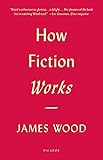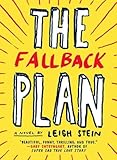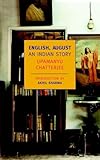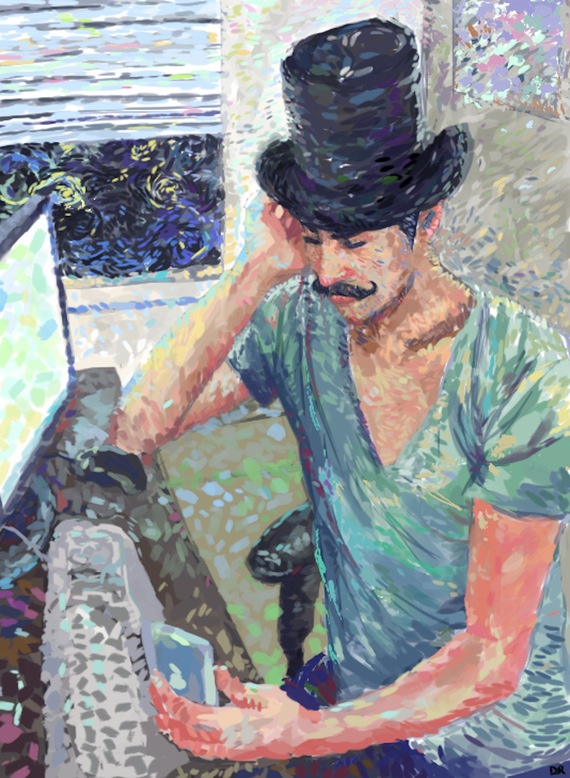1.
 In 19th-century France, the flâneur had an undefined route but a fairly specific path: the wandering observers of Baudelaire and Flaubert (the term comes from the verb flâner, French for “to stroll”) assessed society, notably urban life, with detached interest. These days, the term gets an extraordinary amount of play in the essays of James Wood, who goes into paroxysms of joy every time an eagle-eyed idler walks around and describes the scene in an illuminating way. In How Fiction Works, he writes: “This figure is essentially a stand-in for the author, is the author’s porous scout, helplessly inundated with impressions. He goes out into the world like Noah’s dove, to bring a report back.”
In 19th-century France, the flâneur had an undefined route but a fairly specific path: the wandering observers of Baudelaire and Flaubert (the term comes from the verb flâner, French for “to stroll”) assessed society, notably urban life, with detached interest. These days, the term gets an extraordinary amount of play in the essays of James Wood, who goes into paroxysms of joy every time an eagle-eyed idler walks around and describes the scene in an illuminating way. In How Fiction Works, he writes: “This figure is essentially a stand-in for the author, is the author’s porous scout, helplessly inundated with impressions. He goes out into the world like Noah’s dove, to bring a report back.”
One of the keys to the flâneur and his porous qualities, in my mind, is his idleness: a character engaged in strenuous work has no time to hang out and observe; his insights will have to come from elsewhere. In the 19th century, it wasn’t all that strange to designate your protagonist a “loafer.” But today, this kind of aimlessness strikes an odd chord: it is in and of itself a plot point, a defining characteristic. Flaubert’s Parisian rambler who hangs around cafes, people watching, would today most likely be called a slacker.
 Towards the middle of the 20th century, writers began to refashion the aimless observer. Dissatisfaction crept in, from Holden Caufield’s angst-ridden wanderings to Ignatius J. Reilly in The Confederacy of Dunces. Some say the term “slacker” was coined as early as 1898 — during the World Wars, it referred to draft dodgers — but it didn’t gain pop-culture appeal in America for nearly a century. Born in the ’80s and raised in the shadow of Generation X, I always saw the previous generation — Marty (and George) McFly, Wayne and Garth, Bill and Ted, Jay and Silent Bob, every classroom scene in Clueless, people who used the word “whatever” on a regular basis — as the epitome of slackerdom.
Towards the middle of the 20th century, writers began to refashion the aimless observer. Dissatisfaction crept in, from Holden Caufield’s angst-ridden wanderings to Ignatius J. Reilly in The Confederacy of Dunces. Some say the term “slacker” was coined as early as 1898 — during the World Wars, it referred to draft dodgers — but it didn’t gain pop-culture appeal in America for nearly a century. Born in the ’80s and raised in the shadow of Generation X, I always saw the previous generation — Marty (and George) McFly, Wayne and Garth, Bill and Ted, Jay and Silent Bob, every classroom scene in Clueless, people who used the word “whatever” on a regular basis — as the epitome of slackerdom.
 But it’s my generation that seems perpetually relegated to their parents’ basements. Recently, Emily St. John Mandel reviewed Leigh Stein’s The Fallback Plan, about a young woman who graduates from college and summarily retreats to her parents’ house instead of looking for work. Stein’s protagonist has been called a slacker, but something about her doesn’t quite fit the mold: Stein herself wrote in to add, “This is just a temporary blip in her life as an otherwise successful young woman, and I hope my novel resonates with those in a similar boat: not just the perennial ‘slackers’ out there, but the temporarily lost as well. Esther’s fantasies are just that: fantasies…for successful, ambitious people, there’s a dark fantasy to just throw in the towel, give up, and eat cereal.”
But it’s my generation that seems perpetually relegated to their parents’ basements. Recently, Emily St. John Mandel reviewed Leigh Stein’s The Fallback Plan, about a young woman who graduates from college and summarily retreats to her parents’ house instead of looking for work. Stein’s protagonist has been called a slacker, but something about her doesn’t quite fit the mold: Stein herself wrote in to add, “This is just a temporary blip in her life as an otherwise successful young woman, and I hope my novel resonates with those in a similar boat: not just the perennial ‘slackers’ out there, but the temporarily lost as well. Esther’s fantasies are just that: fantasies…for successful, ambitious people, there’s a dark fantasy to just throw in the towel, give up, and eat cereal.”
I’m interested in characters that are living out that fantasy: what makes for a successful slacker novel? What propels a book when nothing seems to be propelling the protagonist? And how will the tradition of the flâneur be repurposed in the modern era — because isn’t the slacker ideally positioned for the role? I looked at two novels, published a quarter of a century and 8,000 miles apart. The first is Adam Wilson’s Flatscreen, out last month, and the second is Upamanyu Chatterjee’s English, August, published in 1988. They’re wildly different stylistically: where Wilson’s prose is choppy and erratic, like the cocktail of uppers one of his characters has probably just downed, Chatterjee’s sentences wind on languidly through sweltering afternoons, reminding us that despite holding a job in the Indian civil service, his protagonist is usually getting stoned. But the similarities between the books are numerous, beyond the rampant drug use. If a novel garners momentum from its characters’ desires, these two work because they are narrated by young, confused men who both want nothing more than to finally, actually want something.
2.
 At first glance, Adam Wilson’s protagonist, Eli Schwartz, may seem a less than ideal observer:
At first glance, Adam Wilson’s protagonist, Eli Schwartz, may seem a less than ideal observer:
When I was ten, my parents took me to a specialist to get my hearing tested. Worried that I was going deaf because I never paid attention to anything anyone said. Doctor took me into a dark room, gave me headphones. I listened to a series of beeps, raised one finger each time I heard one. Other tests too. Results were suspiciously conclusive. Nothing wrong with my hearing whatsoever.
Eli is in his early 20s, and he’s not doing much of anything with his life: “Instead of college, sank deep into my basement abyss.” He later describes himself as a “glorified townie without the glory. No rugged good looks or blue-collar gas-station-employee pride.” Class is one of Eli’s major hang-ups: though his parents’ divorce bumped his mother and, by proxy, him, down an income bracket or two, he is still comparatively wealthy, and thus doesn’t have to get a job, something he barely wants to consider. In a chapter titled “Money:” Eli sums it all up in two sentences and a bullet point: “Safe to say I wasn’t instilled with respect for the dollar. Let’s not play the blame game.”
If it’s possible to redefine the idea of the flâneur in the 21st century, Eli is probably the place to start. He wanders, sure, but he’s largely stationary. The world comes to him, through the eponymous flatscreens — computers, phones, televisions, etc. Much of the book, in bulleted list form, mimics the pace and the language of the Internet. In fact, Eli is a trustworthy observer and a good porous scout: he’s blank, ready to be inundated with modern life, and abstractly searching for something to stir up some kind of desire and kick-start his inertia. “I wanted everything to mean something. Or at least for something to mean something.”
The book is littered with pop-culture references, particularly to the movies: titles of films, in parentheses, that resemble a situation at hand, and in the final section, there’s a surprisingly affecting twist on movie tropes, in which Eli’s fantasies for getting his life together, or merely getting a life, spiral off in every direction. “Possible Ending #4 (Dark but Ultimately Life-Affirming Screwball Dramedy):…It’s possible I end up a schoolteacher for the mentally unhinged. When Kahn dies I cry fountains, realize how much I’ve learned, how much I still have to learn.”
3.
 The unemployed aren’t inherently slackers, as Leigh Stein (and I, in years past) well know. But employment doesn’t always turn a slacker into a productive member of society. Upamanyu Chatterjee’s protagonist, Agastya Sen, is a reluctant trainee with the IAS, the Indian Administrative Service, and he’s been stationed in backwater Madna, far from the megalopolises in which he’s been raised. In a way, his own disinterest and laziness offer up good metaphors for the byzantine bureaucracy of the IAS, but Agastya’s disinterest is willful, at times petulant. “He himself made no effort to know his new world; as it unfolded, it looked less interesting to him; and later, even to see how far he could extend his ignorance became an obscure and perverse challenge.”
The unemployed aren’t inherently slackers, as Leigh Stein (and I, in years past) well know. But employment doesn’t always turn a slacker into a productive member of society. Upamanyu Chatterjee’s protagonist, Agastya Sen, is a reluctant trainee with the IAS, the Indian Administrative Service, and he’s been stationed in backwater Madna, far from the megalopolises in which he’s been raised. In a way, his own disinterest and laziness offer up good metaphors for the byzantine bureaucracy of the IAS, but Agastya’s disinterest is willful, at times petulant. “He himself made no effort to know his new world; as it unfolded, it looked less interesting to him; and later, even to see how far he could extend his ignorance became an obscure and perverse challenge.”
Agastya, who is alternately known as Ogu, August, and English, a reference to the Anglo-Indians that is delicately explored, leaves his post after lunch and rarely returns, smoking a lot of weed (“Agastya, for the nth time in his life, was glad that he was stoned.”) and spending the intervening hours in the waffling of post-adolescent confusion:
He wondered at the immensity of the Indian Railways, millions of people travelling thousands of kilometres every day — why they did so baffled him. On less calm mornings, he would think about his situation and his job, why he wasn’t settling down, whether his sense of dislocation was only temporary, or whether it was a warning signal. But there was nothing specific that he wanted to do, no other job, and then with a smile he would retort, Yes, there was, design colour schemes for trains, be a domesticated male stray dog, or like Madan, even half-wish to be murdered.
Late in the book, even after he’s matured a little and begun to accept his responsibilities, Agastya still waffles. Visiting a leper colony, he thinks that he envies its founder, now renamed Baba Ramanna, “most of all for knowing, when he had been merely Shankaran Karanth, how to master his future.” Like Eli Schwartz, Agastya makes for a sympathetic protagonist because he’s so quietly apathetic, and also like Eli, his lack of convictions and essential blankness make him an ideal observer. Everyone else has chest-thumping opinions about India: his direct superior; the chief of police; his father, uncle, and friends from home; his new friends in Madna, including an outspoken cartoonist; and a couple — an Indian woman and an English man — who pass through town on a sort of pilgrimage. If the flâneur’s observations are meant for the urban street scene, I think the same principle can be applied in English, August, despite its rural setting: Agastya paints a rich portrait of the IAS, and of a country that only he seems to realize is impossible to describe, or pin down.
4.
Both of these novels have been called “darkly comic.” The king of blurbs, Gary Shteyngart (who blurbed himself recently, saying, “Gary Shteyngart’s blurbs are touching, funny, and true. This is a blurber to watch.”), wrote of English, August that, “Comparing Upamanyu Chatterjee with any other comic novelist is like comparing a big fat cigar with a menthol cigarette.” Of Flatscreen, he said, “OMFG, I nearly up and died from laughter. This is the novel that every Young Turk will be reading on their way to a job they hate and are in fact too smart for.” They are both very funny books: Eli’s got a lot of great one-liners, and Agastya seems tuned into some perpetual joke, which he supplements with compulsive lying. In a way, the comedy is essential: an unfailingly serious book about a man who wants nothing and does very little would be pretty grim. And the humor helps Wilson and Chatterjee tackle generational concerns, because both Eli and Agastya seem convinced that their generations are the ones that will put an end to everything. “Was it true I’d missed the party?” Eli wonders. “This was it for us: reality TV, virtual reality, planes into buildings.” In the final pages of English, August, the cartoonist, Sathe, tells Agastya, “You see, no one, but no one, is remotely interested in your generation, August.”
What makes these boys, and these books, so likeable? They’re gentle, harmless, and fairly charming. They’re smart and funny and wasting their talents. They’re more than a little lost and fully aware of the fact. And in that way, they’re most of us, stripped of our responsibilities and wayward ambitions, if we even have any. They offer perfect reflecting surfaces for their respective times and places. In their lack of desires they show us what we want, as societies, and perhaps even as individuals. The reader might say, “This might be bad, but at least I want to leave my mother’s basement.”
Illustration by Dominick Rabrun.










